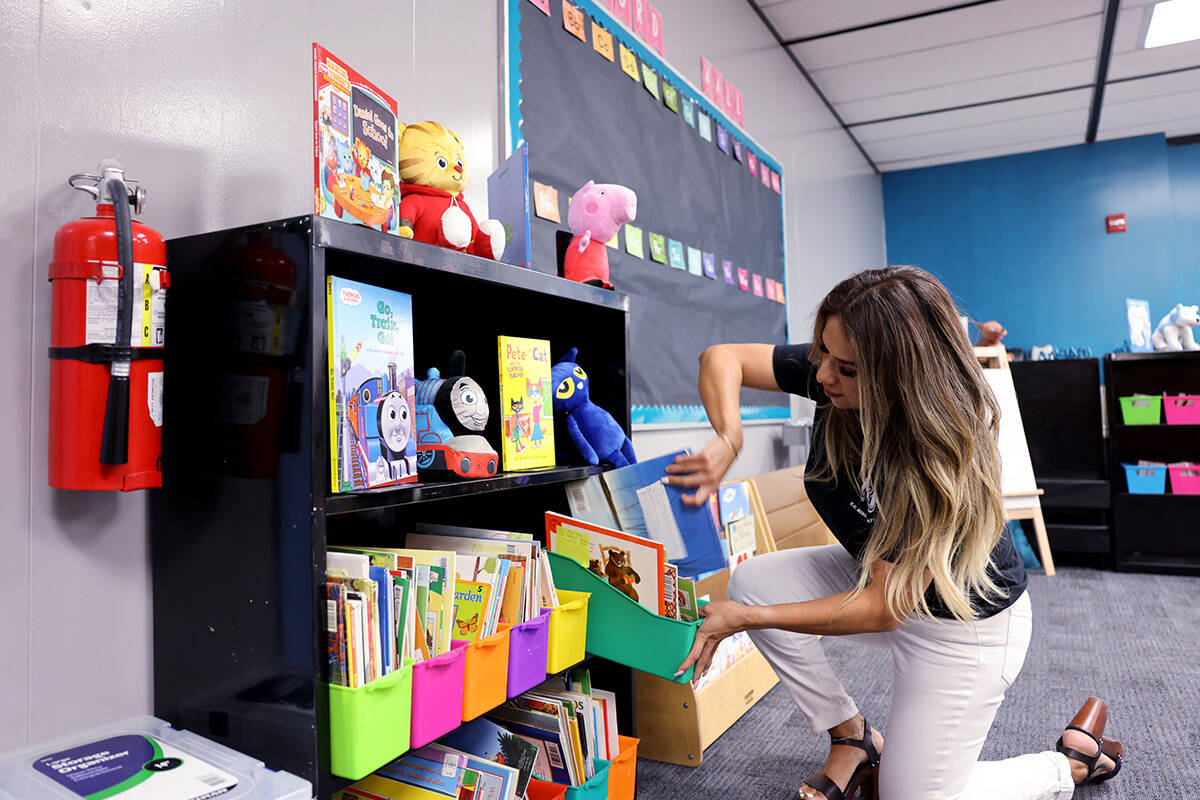Education in Southern Nevada won’t improve until adults acknowledge their previous errors.
The Clark County School District starts classes in 10 days. As of Thursday, there were more than 1,150 job openings for teachers and other licensed personnel. That’s a massive number, though the district says it has filled 94 percent of its teaching positions. Through no fault of their own, the learning prospects of tens of thousands of students look bleak. They’re set up for years of struggling in school and lifetimes of reduced opportunities. Horrible.
That would be concerning enough even if vacancies were evenly spread out through the district’s more than 350 schools. They aren’t. Most vacancies are in low-performing schools, in lower-income areas or both. For instance, schools in North Las Vegas have 247 openings. Schools in Henderson have 63.
This isn’t a new problem. The district had a shortage of teachers last year, the year before and in the decade before that.
It wasn’t supposed to be this way. Last year, Gov. Joe Lombardo and the Democrat-controlled Legislature gave schools a record-setting amount of funding. District teachers received massive raises. Starting teacher pay is now more than $54,000. Just under a decade ago, starting teacher pay was less than $35,000. The district had fewer vacancies back then.
If only someone could have predicted this result. Oh wait. I did.
In late May 2022, the district boosted starting teacher pay by $7,000, a 16.5 percent increase. Days later, I wrote, “Pay hike won’t solve CCSD teacher shortage,”
In the five years before the 2022-2023 school year, the number of teacher vacancies at the start of the year was under 800. At the start of the 2022-23 school year, however, the district had more than 1,350 classroom vacancies.
As much as I wish I could applaud my own foresight, this was obvious for two reasons. First, in 2016, the district boosted starting teacher pay by 18 percent. It temporarily reduced the number of vacancies, but it wasn’t a lasting fix.
Second, the district’s problem remains retention, not recruitment. The district has done a good job bringing in new teachers. But they leave in droves. As of last February, the one-year turnover rate for secondary math teachers was 14.1 percent. It was 15.9 percent in English. Among elementary positions, it was a more manageable 5.9 percent.
This is a pattern. A 2017 Review-Journal analysis found the three-year turnover rate was nearly 30 percent.
Because teachers know the salary schedule when they’re hired, it’s likely not the pay driving them out of the district. It’s the lack of discipline driven by statistically illiterate concerns over racial disparities. It’s the dumbed-down grading policy that undermines teachers’ ability to help students learn. If the district enforces its new cellphone policy, that should help.
The problem is that the education establishment and many politicians have a financial or political incentive to pretend more money will solve this long-standing problem. It hasn’t — and it won’t.
If voters want to fix this, they need to select candidates who will learn from past mistakes, not repeat them.
Contact Victor Joecks at vjoecks@reviewjournal.com or 702-383-4698. Follow
@victorjoecks on X.

